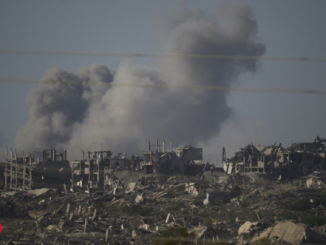
| Published April 7, 2025
Former President Barack Obama has recently addressed the issue of university students expressing support for Hamas, a group recognized as a terrorist organization by the United States, European Union, and Israel. In his comments, Obama emphasized the importance of protecting free speech on college campuses, cautioning against government threats toward universities over students’ expressions. He urged educational institutions to uphold their values and resist external pressures, suggesting that if their actions align with their principles and legal standards, they should stand firm against intimidation.
This perspective aligns with Obama’s broader advocacy for free speech and resistance to governmental overreach. However, it’s important to note that while free speech is a fundamental right, endorsing or promoting terrorist organizations raises significant ethical and legal concerns. The balance between protecting free expression and preventing the spread of extremist ideologies remains a complex and contentious issue within both legal and public discourse.
IMPLICATIONS
The implications of Obama’s defense of students supporting Hamas on college campuses are multifaceted and raise several important legal, ethical, and political concerns:
-
Free Speech vs. National Security: Obama’s defense of free speech, even when it involves controversial or offensive opinions, brings to the forefront the ongoing debate between protecting constitutional rights and addressing national security concerns. While the First Amendment guarantees free speech, there is a line when it comes to advocating for groups associated with violence and terrorism, such as Hamas. This creates tension between safeguarding individual freedoms and preventing the endorsement of harmful ideologies.
-
University Autonomy and Responsibility: Obama’s comments emphasize the autonomy of educational institutions, arguing that universities should not face pressure to suppress speech that, while controversial, falls under the realm of free expression. This raises questions about the role of universities in balancing their duty to foster open discussion while ensuring that extremist views do not escalate into actions that threaten campus safety or promote terrorism.
-
Public Opinion and Polarization: The issue is likely to deepen the political divide, with some seeing Obama’s defense as a principled stand for free speech, while others view it as an endorsement of groups that pose a threat to national security. This polarization could influence public attitudes towards both the concept of free speech and the role of universities in managing campus politics.
-
International Implications: As Hamas is a designated terrorist organization, this debate may have international ramifications, particularly in how governments view the support or tolerance of such groups. Countries that cooperate with the U.S. in counterterrorism efforts may scrutinize the U.S.’s approach to dealing with such ideologies, potentially leading to diplomatic tensions.
-
Legal Precedents and Limits: Obama’s stance could influence future legal precedents in determining the boundaries of free speech, especially in academic settings. If the government or other entities take legal action against organizations or individuals supporting Hamas, it could lead to landmark cases that define the limits of free speech when it comes to terrorism and extremism.
-
Impact on Campus Climate: The defense of Hamas-supporting students could have a lasting impact on the campus environment, potentially encouraging more divisive or extreme rhetoric. Educational institutions may face increased pressure to either allow such speech under the banner of free expression or take action to prevent radical ideologies from gaining traction among students.
OVERALL TAKEAWAY
The overall takeaway from Obama’s defense of students supporting Hamas is the complex intersection of free speech, national security, and university autonomy. While protecting the right to free expression is fundamental, the endorsement of terrorist organizations like Hamas raises significant ethical and legal challenges. The debate underscores the difficulty in balancing constitutional rights with the need to prevent the spread of extremist ideologies, particularly in environments meant to foster open discussion, like universities. Ultimately, this issue reflects broader societal tensions about the limits of free speech, especially when it involves groups associated with violence and terrorism.





Be the first to comment